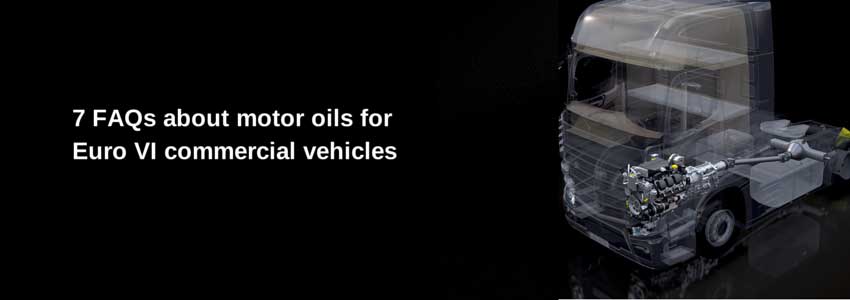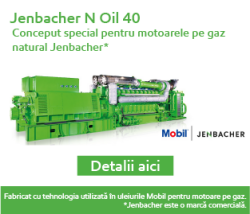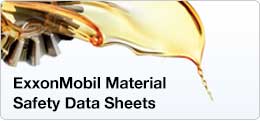7 FAQs about motor oils for Euro VI commercial vehicles
 7 FAQs about motor oils for Euro VI commercial vehicles
7 FAQs about motor oils for Euro VI commercial vehicles
From January 1st, 2014, all newly registered trucks and buses in the European Union must be equipped with a Euro VI-certified engine as a result of the European Commission’s legislation to reduce exhaust emissions in commercial vehicles.
As a consequence, the engine makers have had to invest heavily in developing new technology to create next generation trucks that meet Euro VI emissions limits and to help the fleet operators to save money on the fuel bill. See below 7 FAQs on lubricants for commercial vehicles equipped with Euro VI engines.
1. What is Euro VI?
Euro VI is the latest diesel-engine emission legislation being driven by the European Commission, and came into force in January 2014. It is the latest update to a standard introduced in 1993 to reduce harmful exhaust emissions. Since the enactment of this legislation the released emissions from new diesel-engine trucks and buses has fallen dramatically.
2. Why do new Euro VI trucks need special lubricants?
To meet Euro VI emission targets, all Euro VI engines incorporate exhaust after-treatment technologies which can be sensitive to conventional lubricants components. With its low sulphated ash, phosphorous and sulphur (‘low SAPs’) formulation, the new Mobil Delvac 1 LE 5W-30 can deliver outstanding emission system protection for modern engines, including Euro VI.
3. Are low SAPs oils, recommended for use in Euro VI engines, suitable for older engine designs?
Some low SAPs engine oils can be used in older type engine designs, such as Euro IV and Euro V engines, operating on low sulphur fuels. Operators should refer to vehicle manuals for exact recommendations.
4. Do low SAPs oils also offer fuel economy potential?
Some low SAPs oils have been engineered to offer fuel economy potential alongside compatibility with Euro VI emission system technologies. The properties of the new formulas distributed in Romania by Star Lubricants helps to reduce fuel consumption in commercial vehicles.
Independent fuel economy tests were recently conducted at Millbrook, a leading international vehicle test and development facility in the UK. Two Volvo trucks, loaded to 75 percent Gross Vehicle Weight (circa 44,000kg) undertook a series of fuel economy tests under highway driving conditions. Mobil Delvac 1 LE 5W-30 achieved an average fuel economy gain of 1.8 percent.
5. What other performance benefits do next generation lubricants, such as Mobil Delvac 1 LE 5W-30, offer to commercial vehicle operators?
Along with enhanced emission system protection and fuel economy potential, Mobil Delvac 1 LE 5W-30 offers a number of additional performance advantages compared to conventional mineral oils, including:
- Advanced wear protection
- Extended drain interval capability
- Excellent low temperature performance
- Outstanding thermal and oxidation stability
6. What OEM approvals/recommendations does Mobil Delvac 1 LE 5W-30 have?
Mobil Delvac 1 LE 5W-30 meets the requirements of the majority of Euro VI engines developed by leading Original Equipment Manufacturers (OEMs) such as Mercedes-Benz, Volvo, Cummins and MAN. Refer to vehicle manuals for exact recommendations.
7. Is it only advanced engine oils that can help to optimise the performance of commercial vehicles?
In addition to the advanced synthetic engine oils, high-performance commercial gear lubricants can help deliver higher levels of performance, increased productivity, and reduced operating costs. For example, fully synthetic Mobilube 1 SHC 75W-90 delivers outstanding viscosity-temperature properties necessary for wide temperature range applications, optimised protection against thermal degradation and oxidation, wear and corrosion, shear stability, extended service capability and potential fuel economy improvement.
If you want to benefit from the advantages mentioned in the article, click on the picture below and request a personalized quote for Mobil lubricants suitable for your commercial vehicle fleet.







